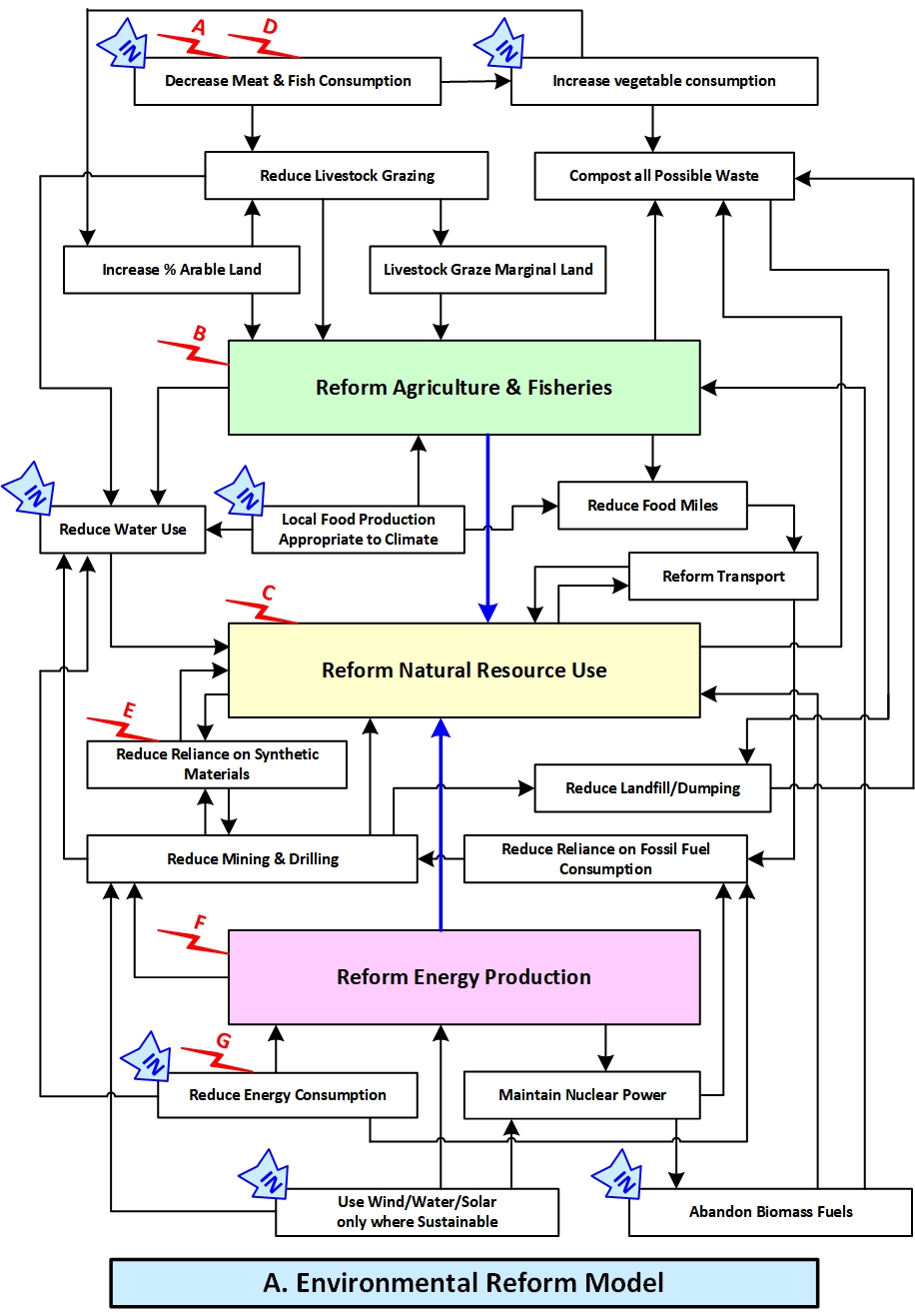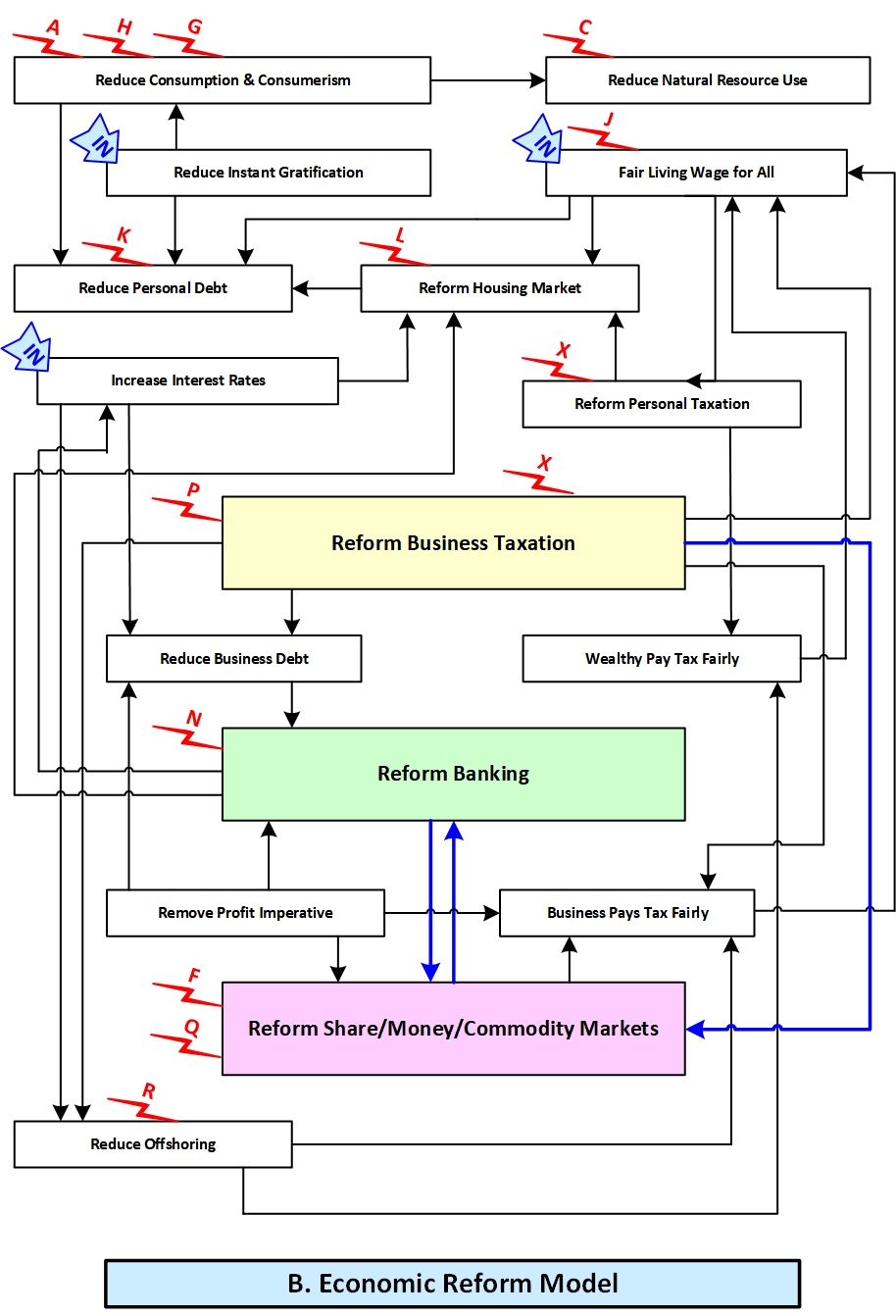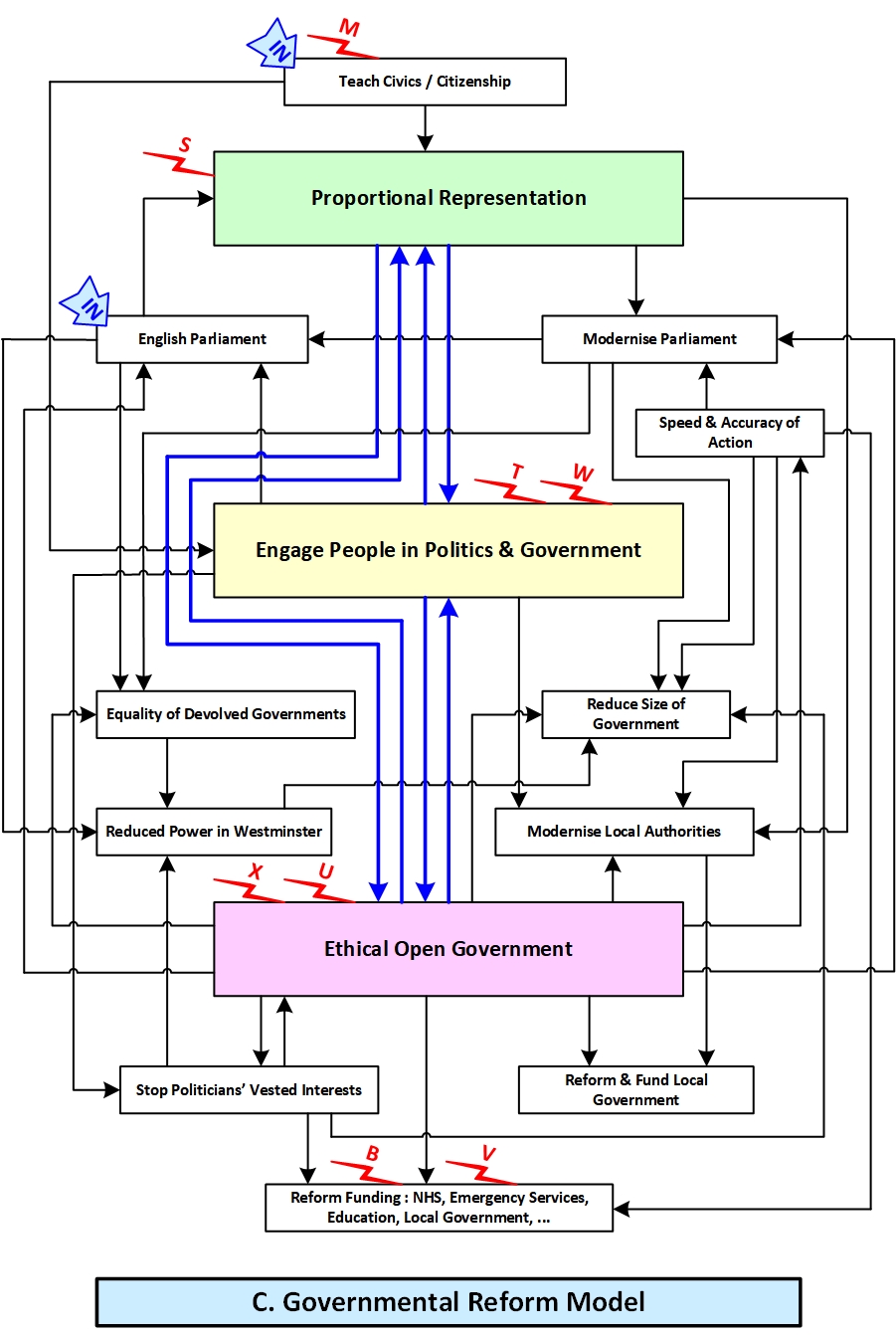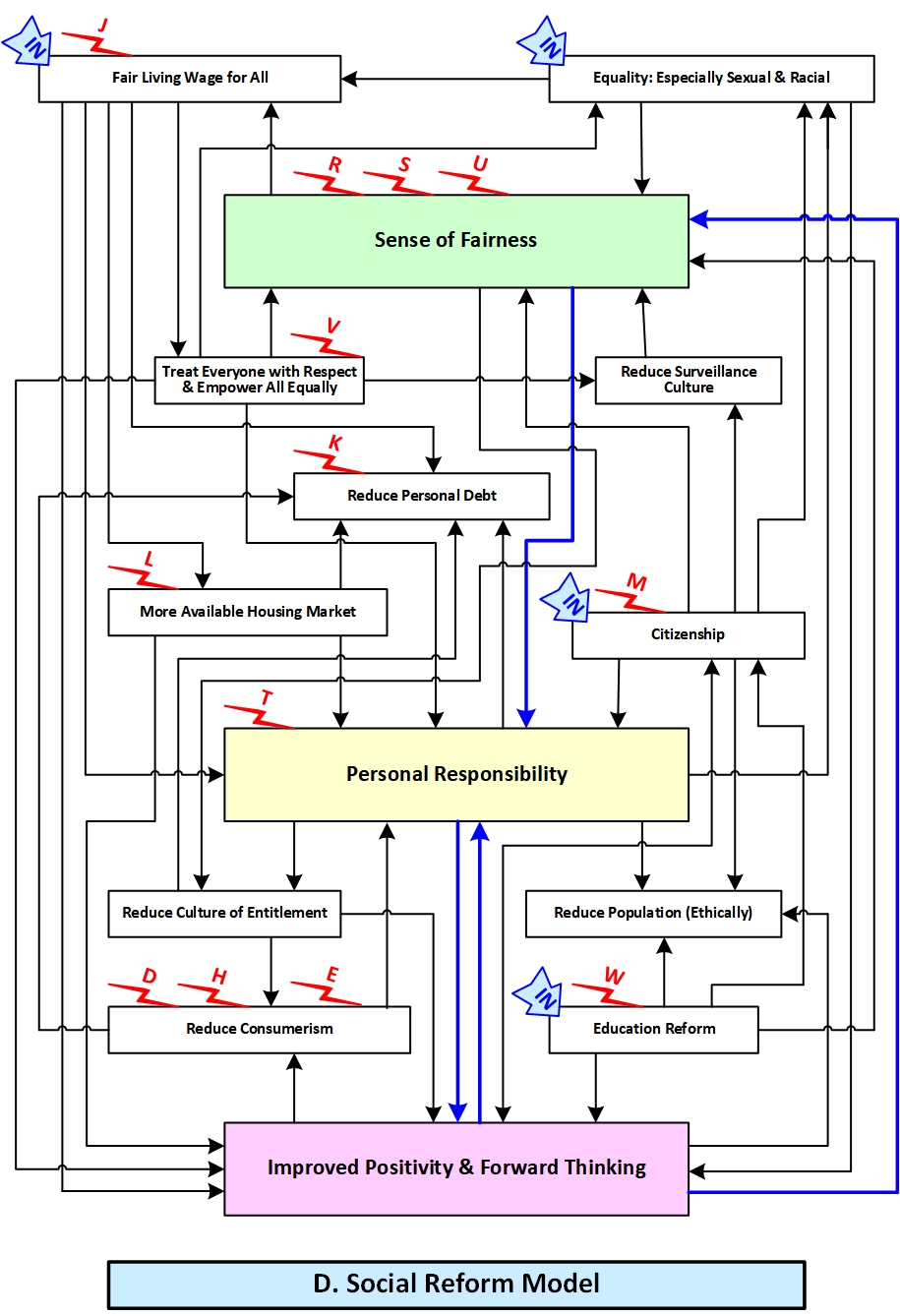Following on from my post of some weeks back where I looked at a model for Environmental Reform, I’ve now had a go at writing flows for the other areas which need to be reformed together if we are to truly change the way our society works – and thus save ourselves and the planet.
As I see it, the four main arenas for reform are:
- Environmental
- Economic
- Political
- Social
They are, of course, highly interdependent.
The diagrams below are my attempt to capture and codify what needs doing.
You’ll see that I have marked with “IN” arrows those places which it seems to me are the simplest and most obvious starting points. Linkages between the areas are shown with lettered lightning flashes.

Yes, it’s very complex; and I don’t pretend I’ve yet got my head round it, nor that the models are necessarily complete. Others may very well disagree with me, be able to add key areas for attention, or linkages between items.
None of this is going to be easy. In fact even the “input points” are going to be fought over. There are too many vested interests amongst the “not-so-great and not-so-good” who hold all the wealth and power worldwide. But also because those of us in the western world have been (relatively) comfortable until now and embarking on this will both threaten that comfort and involve major change – neither of which mankind, as a species, is instinctively equipped to handle as over the aeons it would have been an evolutionary disadvantage. [See, inter alia, Ryback, Lee and Pianka.]
Well perhaps the Coronavirus pandemic can give us a kick start in helping us overcome our (now dangerous) instincts by showing at least the western (developed) world:
- We can significantly reduce travel, especially air travel, for both business and leisure: business doesn’t need to do it and it will likely be neither affordable nor attractive for leisure.
- We don’t all need to commute for 2+ hours a day to pile into an office. Sure, many jobs (eg. shops, manufacturing, farming) have to be done from your employer’s premises, but by far from all do.
- We don’t need to consume stuff at the greedy rate we do (that too is no longer an evolutionary necessity); we can manage with less. Much (especially personal) technology is not essential, merely nice to have. We need to go back to “make do and mend” rather than “throw it away and buy a new one”. Most consumption (beyond the basics) is no more than “cake and circuses” which enriches the already wealthy.
- There is more to life than earning ever more money; by working longer and longer hours; to show you think you’re two steps better than the guy next door; striving to continually climb the greasy pole; and kidding yourself you’re important. [See Hutnik.]
- But perhaps most critically, we might come to understand how important it is to have open and ethical government – and that this is possible, though not inevitable. [See Mair.]
Will any of that happen? I hope it will. But I fear it won’t. I suspect this current panic hasn’t hit nearly hard enough, so not enough people are sufficiently shit-scared (or dead), and so the will (or necessity) for change won’t be there. Even the Great Plague and Great Fire of London (1665 & 1666 respectively) didn’t really hit very hard (they were too localised); the two World Wars came somewhat closer; but only the real devastation of losing 30-50% of the population in the Black Death (1348-50) really caused major reform. And who remembers back 670 years?
The will for change may be there amongst (some of) those of us who think and care. However I suspect that after this current Coronavirus panic is over “the people” will go back to their old ways, rejoicing at having escaped the demon bug (‘cos it never happens to them!), demanding what they had before, and being as selfish as ever.
Judging by recent behaviour, the signs are not good.




A great discussion starter! There is such a huge amount here that the content feels similar in scale to an entire book. I have found nothing to disagree with as such, and like the ABCD subjects and the subdivision blocks, but it’s going to take a lot more reflection to truly get to grips with it.
Thanks, Ivan. Yes, there’s a huge amount there and it took quite some time to think through, organise and consider the links. And the complexity is why I suggest it isn’t complete, or indeed totally accurate; that’s reflection of my lack of knowledge of all the systems involved. For instance, on chart D does “Sense of Fairness” drive “Fair Living Wage for All”, or is it the other way round, or both? And there are quite a few instances like this where the direction of the arrow is debatable. But I guess the point is that here is something we could start with.